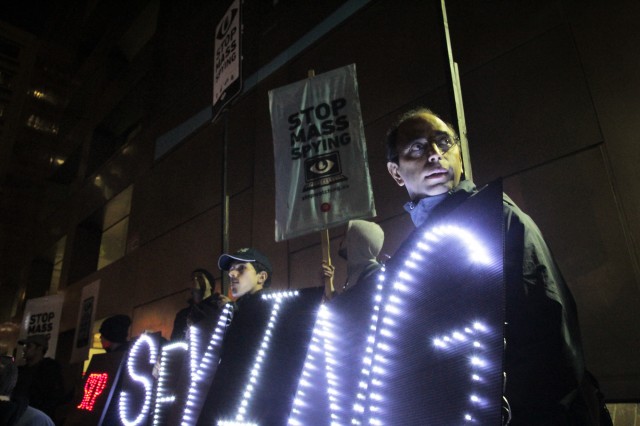
By Ali Winston
The Center for Investigative Reporting
Police departments in the Bay Area and across the United States have adopted automated license-plate readers as a crime-fighting tool — technology capable of spotting vehicles that have been reported as stolen. But with few controls on how the license-plate data are used or handled, the devices have emerged as a major concern for privacy advocates, who say the technology can be used to track people whether or not they’re suspected of any wrongdoing. Now, the types of data collected and analyzed with the help of license-plate readers are expanding into other realms of personal information.
Documents obtained by The Center for Investigative Reporting show that a leading maker of license-plate readers wants to merge the vehicle identification technology with other sources of identifying information, alarming privacy advocates. Vigilant Solutions is pushing a system that eventually could help fuse public records, license plates and facial recognition databases for police in the field.
The Livermore company released its own facial recognition software last year for use in stationary and mobile devices. The technology uses algorithms to determine whether a person’s face matches that of somebody already in a law enforcement database. Like license-plate readers, facial recognition technology has been criticized for incorrectly identifying people.
Vigilant also is the market leader in license-plate data collection. The company runs the Law Enforcement Archive and Reporting Network database, which stores more than 2.5 billion records and adds roughly 70 million new license-plate scans monthly. The company offers law enforcement free access to its license-plate data through another database, the National Vehicle Location Service.